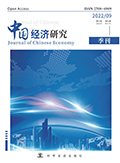

本文评介了北京大学封凯栋的专著《国家的双重角色: 发展与转型的国家创新系统理论》。新古典经济范式因不能把握创新的非线性、知识的缄默性特征, 而对创新解释乏力。本书从微观的网络互动层面诠释创新市场互动的逻辑, 不同于由价格协调的完美市场, 创新市场上的主体互动是有组织的相互发现并相互配合的知识交换过程。“受组织”的市场因为更符合创新知识的信息结构而超越了完美市场。成功创新的关键在于公用知识与私用知识转换是否畅通, 而疏通知识转换机制的最好选择是政府。国家在创新系统中充当两类角色: 一是作为创新活动重要的制度供给者和资源配置者; 二是作为创新经济系统转型的关键推动者。创新转型需要由国家对战略性产业进行资源的集中投放, 转型要求的国家能力有国家大范围的资源调度能力与能够辨明战略性产业的信息反馈机制。本书通过发达国家创新转型的历史分析, 探究了具有成功转型经验的国家获取转型所需国家能力的过程与方式, 为中国自主创新制度建设提供新参考。
This article reviews the book “Dual Roles of the State: A National Innovation System Approach for Development and Transformation Analysis” by Feng Kaidong from Peking University. The neoclassical economic paradigm has limited explanatory power for innovation because it fails to grasp the non-linear, knowledge reticent character of innovation. The book explains the logic of innovation market interaction at the level of micro-network interactions. Unlike the perfect market, which is coordinated by price, the interaction between subjects in the innovation market is an organized process of mutual discovery and cooperative knowledge exchange. The “organized” market surpasses the perfect market because it is more in line with the information structure of innovation knowledge. The key to successful innovation is a smooth transition between public and private knowledge, and the best option for unlocking the knowledge conversion mechanism is the government. The state plays two roles in the innovation system: one is as an important institutional supplier and resource allocator for innovation activities, and the other is as a key driver of the transformation of the innovation economic system. Innovation transformation requires a concentration of resources by the state in strategic industries, and the transformation requires state capabilities such as the ability to allocate resources on a large scale and an information feedback mechanism that can identify strategic industries. Based on the historical analysis of innovation transformation in developed countries, the book explores the process and ways in which countries with successful transformation experiences acquire the national capabilities required for transformation, and provides new references for China's autonomous innovation system construction.